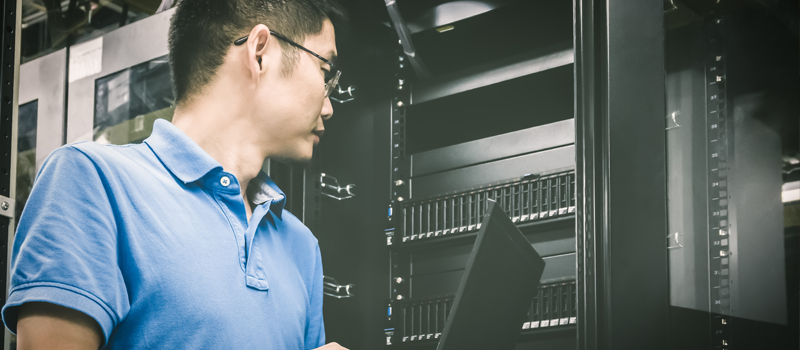
 Carl Grivner
Carl Grivner
CEO, Colt Technology Services
Colt CEO argues present industry performance will fuel future outcomes
These are unprecedented times, not least for a global connectivity industry that is seeing an off-the-scale demand for its services. It’s a story still unfolding, but for Carl Grivner, CEO of Colt Technology Services, it will stimulate industry changes and drivers far and wide.
He ticks off the current situation: “We are seeing tremendous demand from very large customers in terms of data circuits including an incredible amount of 100G circuits, and facilities all relating to cloud connectivity as people move to the cloud.”
Part of this is a “natural acceleration” as organizations become cloud-centric operations. But combined with the crisis, cloud providers, he says, are being “inundated” with demand. It may be one stress point, he argues, but the industry needs more than just servers, it also needs better connectivity alongside.
Another type of current demand is more unexpected. “What has also probably taken everyone by surprise is a significant increase in voice traffic,” he muses. “Voice, apparently dead for years, is now making a comeback as an offshoot of people staying at home and communicating via the phone in the old-fashioned way.”
The telecom sector including Colt, he says, is benefitting, especially where technology strategy has been correctly mapped out. “Our advantage is that we upgraded our network three years ago: I called it the ‘shiny new car’ strategy. With it we can dial network capability up or dial it down to suit customer needs.”
As a result of this on-demand flexibility, he says, the company has received “phenomenal” customer satisfaction scores, vindicating a technology journey largely predicated on SDN, and won acclaim from industry analysts such as Gartner, which termed the company as a Visionary in its Magic Quadrant for Network Services Global survey. “We were searching for the right applications [at the time]. Now, it is really taking off. Post-crisis it will drive more demand for SDN configurations as well.”
Getting to a New Normal
He suggests the context may feed into a new normal for the industry more broadly. His conversations with other CEOs suggest the crisis has not only forced demand but encouraged a future industry structure with more emphasis on collaboration. He is emphatic that current performance standards are “nothing to call out,” but he maintains that “all of us underestimated the magnitude and scope of this, not necessarily in our own businesses, but in terms of the impact on business overall.”
Much of this will be pragmatic. It is about “stretching resources in different spots, giving access to customers in different locations.” He contends the industry can work to be even more prepared than it has been, particularly in a process perspective in terms of NOC interfaces and API sharing capabilities between telcos.
There will be a network rearchitecting but also a business organization rearchitecting, a process he says will have been stimulated by COVID-19. “In Colt, we are a completely work-from-home operation everywhere in the world right now.” Notwithstanding some tweaks in “minor ways,” such as making sure everyone actually had a laptop, he says the crisis reorganization largely saw a seamless transition. “We never envisaged we would ever have 100 percent of staff work from home… but we went in stages: ‘soft’ work from home to 50/50 to 100 percent lockdown at home. The [process] gave us time to build up those capabilities.” The company also upgraded its own internal network.
Much of this relied on process management and planning, but he acknowledges the place of leadership messaging and some new priorities: “Take care of yourself and your family first, take care of your customers second. You must take care of yourself because you need to do that and it is a natural thing to do. To say this comes first, or that comes first, is not true. The right message has to be that the individual stays healthy and follows government mandates. We will manage, there are 5,000 of us, and we are a global company. We can put resources in different time zones and the collaborative aspect of that has worked well for us.”
He conceives shifting work patterns more generally will be part of the new normal. “I think we will have to rearchitect not just from a network perspective but how we work,” he predicts. Remote working will see a permanent place now “in a certain niche,” and be more broadly accepted in society. At the same time, he argues, the social aspect is important. There are possible issues of cabin fever and a general need for balance. “Personally, I can’t wait to get back to the office,” he quips. “I even want a ‘work from work’ celebration once the restrictions are removed.”
“The shift, however, will drive some new dynamics,” he suggests. “It will start to accelerate software connectivity in the network, better interfaces to customers, better interfaces to other carriers.”
He continues: “My vision is that we will be hiring more software engineers than network engineers in the next five years because I really believe, as the [network] hardware becomes more manageable via software, we will introduce our own software, including AI and blockchain.” He maintains that any telco serving B2B or B2C environments will need this capability in the future.
Getting there will require a continuity of network investment with a long-term vision, something he says Colt parent and investor Fidelity Investments are well attuned to. “I think sometimes [they] have a longer-term perspective than I do. Opportunities to invest are still there, and once we get through [the crisis]… it becomes more obvious why fiber is so important, and why the amount of fiber is so important, when you have customers ordering 20 times what they would normally order.”
He continues: “We have always seen ourselves as an asset-heavy network [involving] fiber in the ground, our own network, and more services for our customers. I don’t see that changing. If anything, for us, it has endorsed our philosophy in terms of what you can do for your customers in an [on-demand] basis.”
Changing Times
What happens in the marketplace will be intriguing, he says, both from an investment and a customer point of view. A shakeout is plausible. “I think that customers will have long memories from this period. I just don’t think many companies have responded the way we have. I’m not making a commercial, but we have invested a lot in the new network [to do this]. The ‘shiny new car’ is paying dividends. More customers will see that and see the value of the company owning its own resources on a global basis.” With an ongoing expansion planned, he says, Colt will be applying for more licenses and overseeing an expansion of its physical fiber network in new metro areas adding to its current tally of 212 city locations, connectivity for 900 data centers, and 29,000 buildings worldwide.
More dialogue with regulators is also on his to-do list. In April, he became a board director of the European Competitive Telecommunications Association (ECTA), an industry association lobbying for the alternative operator community, with a vision to press for the “pro-competitive values that ECTA defends.” He continues: “I hope we will see a change in Europe specifically… I hope the European Commission looks at the value of competition as promoting flexibility and redundancy [in this sector]. Companies like Colt are critical in getting the economy back up and running. That is my ask, more so than my hope.” Alongside this, he suggests, policymakers will need new perspectives on network services as critical infrastructures with unrestricted access policies for key workers, although he acknowledges Colt is not seeing impediments in the current lockdown.
He muses on the unfolding landscape. “It is an exciting thing right now,” he contends. “We have taken customers from working next to someone in an office to working at home next to their dog. In doing so, we have just surpassed expectations, and our results are exceeding what they were. I attribute that to the people of Colt, and where this industry can go.”
Editor’s Note: On 20 May 2020, it was announced that Carl Grivner will step down as CEO of Colt Technology Services. The preceding interview was completed before this announcement was made.







